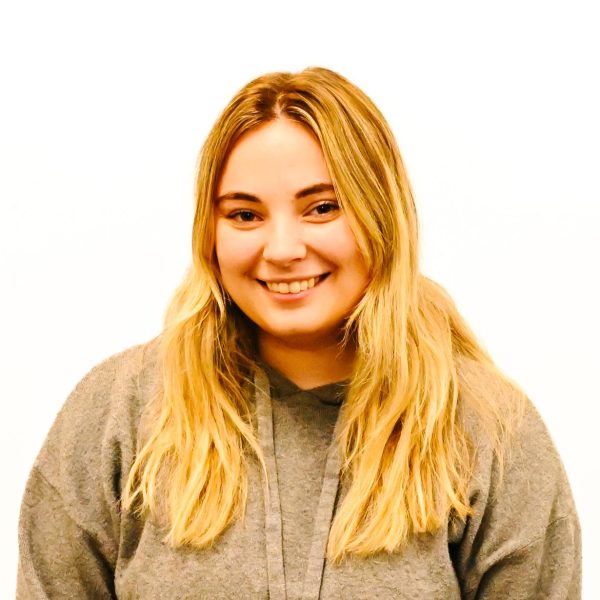Every year, the Office of Student Leadership and Community Engagement organizes the Beacon Voyages for Service program which, according to the OSLCE website, “focuses on developing active citizens through investigating root causes and participating in direct service connected to social justice in various parts of the country during school breaks [1].” BVS participants take domestic and abroad trips to address social issues, such as mental health stigma, immigration, disaster relief, poverty, education and more. In addition to on-campus efforts like fundraising and coordinating, participants use the time before their trip to learn about each topic and other ongoing projects in the region.
BVS trips follow the eight core components of a quality “alternative break,” all of which are designed to provide students with an engaging and fulfilling break experience. The program emphasizes strong, direct service and seeks to “engage participants in dialogue that furthers understanding of how systems of power, privilege, and oppression relate to social issues and service work in communities,” according to the Break Away organization [2]. Throughout the course of the program, participants are offered training and education on that trip’s topic, and are given space at the end of the trip to reflect on their experiences and apply their education to their local community.
There are three trips students will make during the 2023/2024 year, according to the BVS website: one to Acadia National Park, one to San Francisco and one to Culebra, Puerto Rico [3]. All three of the trips are working toward different goals in different areas of social justice, and all three have active fundraisers, although the online fundraisers for the Acadia and San Francisco trips close at the end of February.
For example, the trip going to Acadia is focused on the environment.
“The overarching mission of our program is to provide students with meaningful opportunities for service, learning, and personal growth,” said Shah, who oversees the Acadia trip. “By immersing ourselves in the natural beauty of Acadia National Park and engaging in hands-on projects, we hope to foster a deeper appreciation for environmental conservation and community involvement.”
Shah also described some of the activities volunteers will engage with in Acadia: “We will be participating in various volunteering activities such as artistic painting of floor maps for children, writing for a children’s project, organizing and cleaning storage facilities, potential papier mâché projects, and the possibility of participating in a track cleanup program.”
According to the Acadia National Park page, climate change is the most pressing issue facing the park. Their website reads, “Acadia’s temperatures are warming, growing seasons are lengthening, we have more precipitation, with bigger storms. Sea level has risen by eight inches since 1950, and the ocean is warmer and more acidic. Invasive animals, pests, diseases, and plants are capitalizing on stressed ecosystems to spread further and deeper, outcompeting native species [4].” Bats, peregrine falcons and bald eagles are especially endangered.
Other BVS trips will be taking part in similar activities as the Acadia trip, including the trip going to San Francisco, which focuses specifically on the Filipino-American community in the area. In addition to learning about topics like housing and labor, the group is working with Pinoy Educational Partnerships, an organization that “implements a transformative decolonizing curriculum and pedagogy, incorporating all grade levels including primary, middle, secondary, post-secondary, and graduate students,” according to the PEP website [5]. As part of the teach-in, participants in the BVS trip will get the opportunity to be educated about Filipino-American history, as well as to instruct younger students.
Finally, the third BVS trip will travel to Culebra, Puerto Rico to “engage in the present day impact of colonization and gentrification in Puerto Rico,” as well as work directly with “Kids 4 Green.” According to their website, Kids 4 Green provides free extracurricular activities and schooling to underserved children, and their programs cover topics such as responsibility and teamwork skills, arts and crafts, and pregnancy prevention [6]. Puerto Rico was originally colonized by Spain in the 16th century, but according to National Geographic, it was occupied by the United States in 1898 as part of the Spanish-American war. As a result, Puerto Rico lacks rights that are offered to full U.S. states and has struggled with the repercussions of hundreds of years under colonial rule [7].
At the end of the day, the BVS program seeks to create not only better conditions for the areas they travel to, but better students and leaders that will go out and create change at home. Elizabeth Cantor, the Assisstant Director of OSLCE, emphasized this:
“Beacon Voyages for Service is an incredibly special program not because it culminates in a trip, but because of the work students put in for the whole academic year really digging into an issue to understand its root causes. Our students understand that direct service is important—and that understanding why the direct service is needed, is how we can create change. Our groups return ready to look how the issue manifests in Boston and at UMB, and ready to take action.”
If you would like to support the trips, the BVS program is hosting a “BVS Bash” on April 1 from 12 to 3 p.m. in the Alumni Lounge. You can also donate to their fundraisers, which are currently still live on the BVS website.
SOURCES:
[1] https://www.umb.edu/campus-life/clubs-activities/oslce/
[2] https://www.umb.edu/media/umassboston/content-assets/learningdesign/pdf/8_Components2017.pdf
[3] https://www.umb.edu/campus-life/clubs-activities/oslce/beacon-voyages-for-service/
[4] https://home.nps.gov/acad/learn/nature/environmental-threats.htm
[5] http://www.pepsf.org/what-is-pep.html
[6] https://www.kids4greenculebra.org/
[7] https://www.nationalgeographic.com/history/article/puerto-rico-debated-statehood-since-colonization


